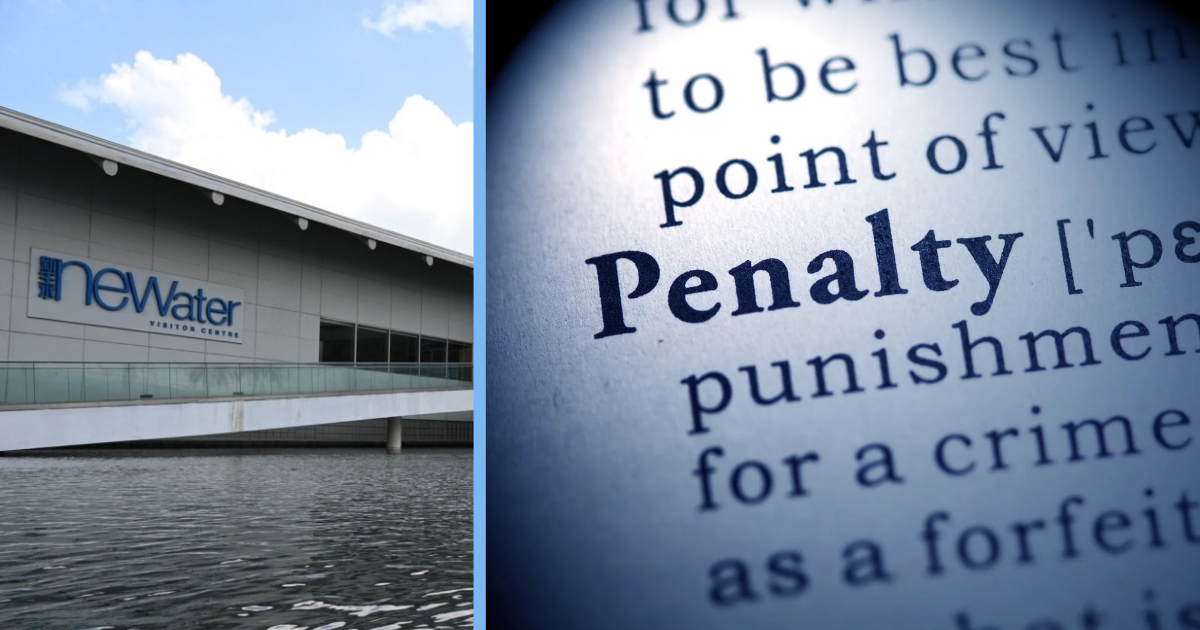You know how they tell you not to spew toxic gossip into the ether lest it returns to you threefold? Releasing toxic sewage can actually be penalised highly now.
We kid, of course, but stiffer penalties will still be involved.
In fact, in a new bill passed in Parliament on 11 Nov, a minimum penalty of $40,000 will be introduced for companies that recklessly discharge hazardous substances without approval from the national water agency, PUB.
Maximum penalties will also be raised to dissuade offenders from repeatedly discharging illegal contents into the waters, doubling from $200,000 to $400,000.
Repeat offenders can face a maximum penalty of $100,000, an increase from the previous penalty of $50,000.
These were some of the revisions and changes to the Sewerage and Drainage Act passed in Parliament on 11 Nov, as headed by Dr Amy Khor, Senior Minister of State for Sustainability and the Environment
In her speech, Dr Khor highlighted the importance of preventing illegal dumping of chemicals and other contents into the water, reiterating how toxic and harmful chemicals dumped into the water can kill the microbes used to treat used water at water reclamation plants (WRPs).
Workers who maintain the sewers and WRPs would also be in danger of any illegal chemicals dumped in the water, who might inhale the toxic fumes and be at the mercy of fires and explosions from the flammable and volatile substances.
In response to a question by Ms Hany Soh (Marsiling-Yew Tee GRC) on recent figures, Dr Khor said between 2017 and 2023, PUB prosecuted 90 offenders for 295 effluent-related offences.
70% of those prosecuted each year were unfortunately repeat offenders.
The Importance of Remembering Where Water Comes From
So why is it so important?
Well, besides the growing impact on the environment and Singapore’s biodiversity, we might need to rely on the water more in the next few years.
Singapore’s sewerage system channels uses water from industries and households that then get transferred to WRPs. The system then treats the used water before sending it to Newater factories to produce the recycled water.
This is important as there is a rising concern over climate change and increasing number of dry spells experienced within the country, this highlighting the need to further safeguard the quality of used water, said Dr Khor.
Most companies have complied with the rules and regulations of responsible disposal of chemicals but Dr Khor noted that “there are some irresponsible offenders, including some recalcitrant ones, whose actions have threatened our used water system.”
So is it just stiffer penalties in question?
Not quite.
The changes and revisions to the Act will also allow for tracking devices to be installed on piling and soil investigation rigs. This will allow PUB and contractors to be alerted if a rig is set up near the sewers.
Keeping Singapore’s drainage system unobstructed is important, Dr Khor reiterated, as any obstruction or blockage would cause a choke, which will then impact the rest of the systems across Singapore.
Changes to the Act will empower PUB to respond to non-construction activities and discharge into reservoirs, and safeguard Singapore’s drainage systems to withstand extreme weather conditions and intense rainfall in the future. The PUB has already increased inspections across the country to prevent blockages and discharge that might occur.
“A choke in a public sewerage system may lead to sewage overflow in neighbouring units, impacting public health. A blocked stormwater drainage system may cause flooding during heavy storms, posing safety risks to the public and potentially causing property damage,” said Dr Khor.
Over in TikTok, there’s a drama involving property agents that’s caused by us. Here’s what happened:


Read Also:
Advertisements

